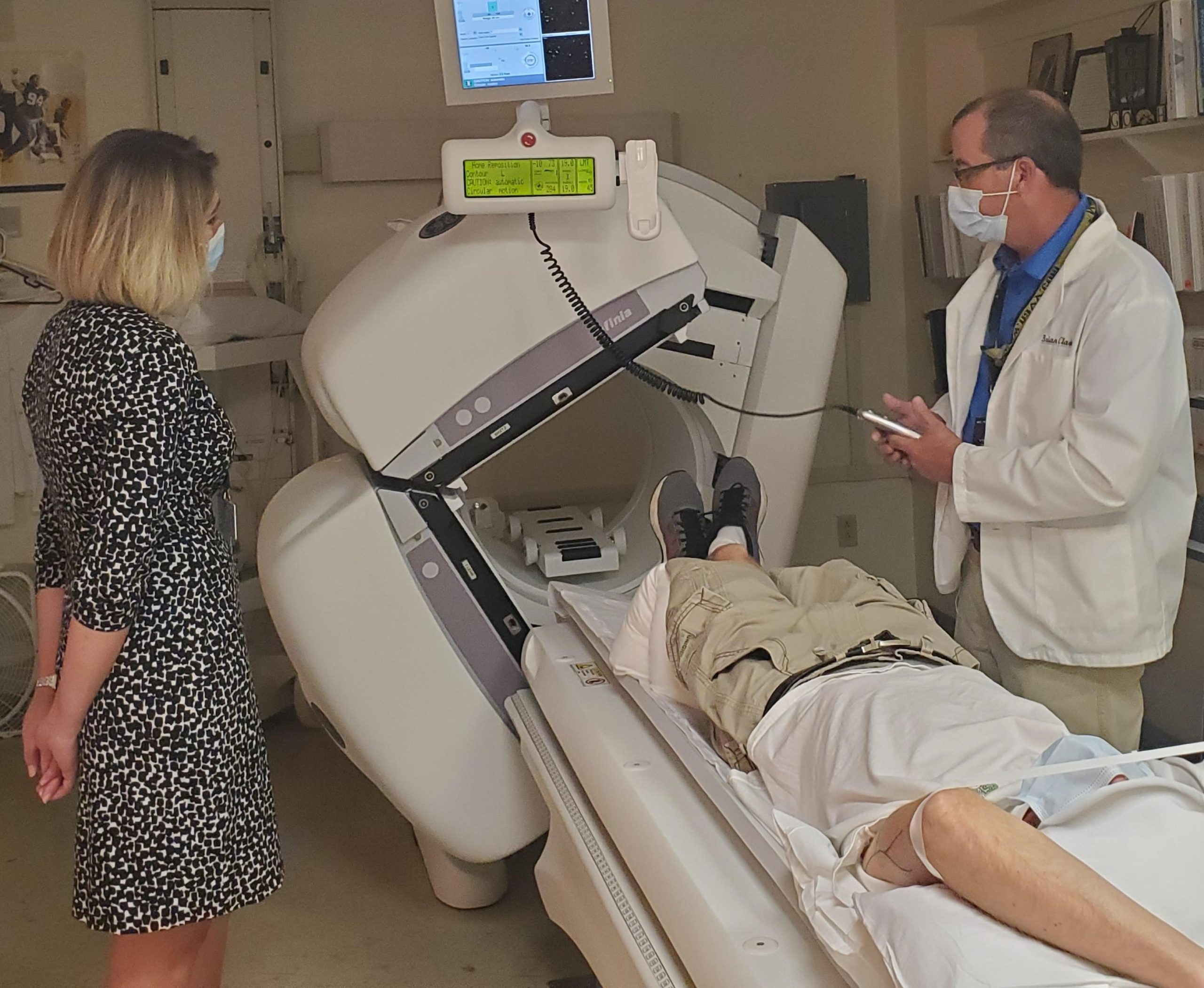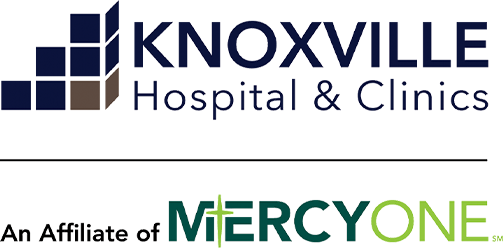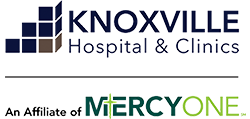Cardiac
Stress Lab
Determine your risk for heart disease
The Knoxville Hospital & Clinics’ (KHC) Cardiac Stress Lab provides cardiovascular testing services. Patients are referred to the lab to determine the cause, risk assessment and outlook associated with various forms of heart disease by performing stress tests or wearing external cardiac monitors.
Typical symptoms requiring service in the cardiac stress lab include: chest pain; unexplained shortness of breath; unexplained arm, neck, back or jaw discomfort; fatigue or weakness; palpitations; dizziness; fainting episodes; valvular heart disease; and heart failure.

Cardiac Stress Test
A cardiovascular stress test evaluates a patient for the presence or severity of coronary artery disease (CAD), exercise-induced arrhythmias or hemodynamic changes, and/or cardiac functional capacity.
The cardiovascular stress test is performed using continuous electrocardiographic monitoring (ECG), monitoring blood pressure and pulse, and measuring changes in cardiac electrical activity during and after the use of a cardiac stressor (exercise or a drug). The patient’s heart is stressed by walking, then by running on a treadmill, or by riding a stationary bicycle, or by climbing up and down steps. When the patient cannot perform an exercise (e.g., ride a bike), cardiac stress may be induced with intravenous (IV) medication.
Additional Cardiac Testing
Depending on the results of the cardiovascular stress test, your physician may recommend more tests such as:
- Nuclear stress test: A nuclear stress test measures blood flow to your heart at rest while your heart is working harder as a result of exertion or medication. The test provides images that can show areas of low blood flow through the heart and damaged heart muscle. The test usually involves taking two sets of images of your heart – one at rest and another after stress, either by exercise or medication. A doctor may order a nuclear stress test, which involves injecting a radioactive tracer into your bloodstream, if your doctor suspects you have coronary artery disease or if a routine stress test didn’t pinpoint the cause of symptoms such as chest pain or shortness of breath. A nuclear stress test also guides your treatment if you’ve been diagnosed with a heart condition.
- Holter monitor: A Holter monitor is a small, wearable device that keeps track of your heart rhythm. You doctor may want you to wear a monitor for one to two days. During that time, the device records your heartbeats. A Holter monitor test is usually performed after a traditional test to check your heart rhythm (electrocardiogram) if the electrocardiogram doesn’t give your doctor enough information about your heart’s condition. Your doctor uses information captured on the Holter monitor to figure out if you have a heart rhythm problem.
- Cardiac catheterization: Cardiac catheterization is a procedure used to diagnose and treat cardiovascular conditions. During the procedure, a doctor inserts a long, thin tube (called a catheter) in an artery or vein in your groin, neck or arm and threated through your blood vessels to your heart. Using the catheter, doctors can then do diagnostic tests as part of a cardiac catheterization. Other treatments use cardiac catheterization such as coronary angioplasty. Usually, you’ll be awake during cardiac catheterization, but given medications to help you relax. Recovery time for a cardiac catheterization is quick, and there’s a low risk of complications.
Referrals for stress lab testing
A physician must order any services offered in the Stress Lab. For further information or assistance, please call your primary care provider. Medicare and commercial insurances are accepted and cover most or all of the costs for prescribed services. We encourage you to contact your insurance provider regarding your benefits and coverage before scheduling.
Nuclear Medicine Technologist Brian Clarke, owner of Knoxville Nuclear Medicine, provides diagnostic testing and imaging services for KHC, and works closely with our primary care providers and specialists. A native of Knoxville, Brian’s rapport with patients and relationships with the referring physicians makes him a top choice in south central Iowa for cardiovascular testing, bone density tests and nuclear medicine services. He has been serving KHC for nearly 20 years.
Cardiovascular disease screenings
Knoxville Hospital & Clinics also performs cardiovascular disease screenings through its family medicine clinics. Medicare Part B covers screening blood tests for cholesterol, lipid and triglyceride levels every 5 years, when ordered by a doctor. Medicare Part B beneficiaries pay nothing for the tests. These screening tests help detect conditions that may lead to a heart attack or stroke.
Your doctor or other health care provider may recommend that you have these blood tests more often than Medicare covers. Or, may recommend services that Medicare doesn’t cover. If this happens, you may have to pay some or all of the costs. It’s important to ask questions so you understand why your doctor is recommending certain services and whether Medicare will pay for them.

